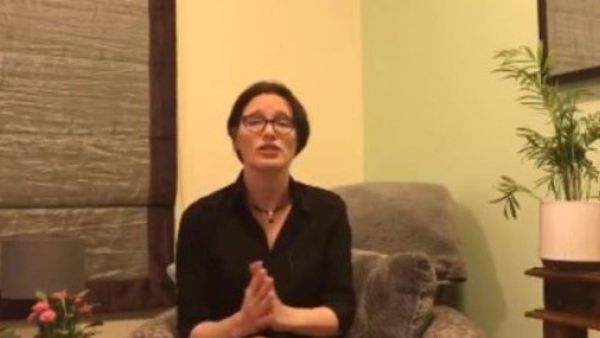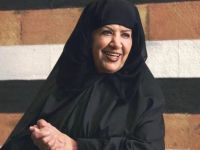Alyson King, a UK government Arabic spokeswoman and Senior Regional Communicator for MENA, says she will fast for one day in Ramadan "to fight hatred and bigotry".
Speaking in fluent Arabic in a video this week, she said she wanted to express tolerance through deeds not just words by taking on the challenging task.
قرّرت خوض تجربة الصيام وذلك إيمانا مني بأنه لا يمكنني التحدث عن التعايش والإنفتاح على الآخر من دون أن أترجم أقوالي إلى أفعال، وبأن خطاب التسامح هو أفضل وسيلة لمكافحة روح الكراهية التي يحاول البعض نشرها. ترقبوا المزيد عن هذه التجربة على #إنستغرام @natiq_britanee #تعايش_لا_كراهية pic.twitter.com/9ccjOjuEZ8
— AlysonKingUK ?? أليسون كنغ (@AlysonKingUK) May 29, 2019
"I decided to try this experience of fasting because I believe that I can’t talk about coexistence and tolerance without translating my words into deeds," said the Middle East-based UK official, adding that tolerance speech is the best means to fight hatred.
Alyson, who says she fell in love with the region over 20 years ago, explained that fasting encourages empathy with refugees and the downtrodden.
The official actively shares her insights on social media and often posts videos and images, accompanying them with texts in Modern Standard Arabic.
Across the world, Muslims fast each day for the entire month of Ramadan, abstaining from food and drink from dawn to dusk. That means around 15 hours without food, water, cigarettes or caffeine in some countries.
Fasting is aimed at drawing worshippers closer to God through self-control, remembrance and humility. The challenge of fasting for many is also a chance to reset spiritually and physically, kick bad habits and purify the heart.
{"preview_thumbnail":"https://cdn.flowplayer.com/6684a05f-6468-4ecd-87d5-a748773282a3/i/v-i-d…","video_id":"dc943590-713f-436f-a580-2d4db238b59f","player_id":"8ca46225-42a2-4245-9c20-7850ae937431","provider":"flowplayer","video":"Can Jordan King, Kushner Agree on Mideast Peace"}
During the day, Muslims must also abstain from sex, gossip and cursing, and are encouraged to focus on meditative acts like prayer, reading the Quran and charity.
It’s common practice across many Muslim-majority nations for liquor stores and hotels to curb the sale of alcohol during Ramadan. Often, restaurants shutter their doors during the day.
Those exempt from fasting include children, the elderly, the sick, women who are pregnant, nursing or menstruating, and people travelling.
The Ramadan fast begins with a pre-dawn meal called "suhoor" to prepare hungry stomachs for the long day ahead. A typical suhoor often includes bread, vegetables, fruits, yogurt, tea, as well as lentils and beans.
At sunset, when it's time to mark the end of the day-long fast, families and friends gather for an evening meal known as "iftar".
These are often lavish affairs of home-cooked platters of rice, stews and meat, as well as spreads of desserts and other sweets.
This article has been adapted from its original source.








